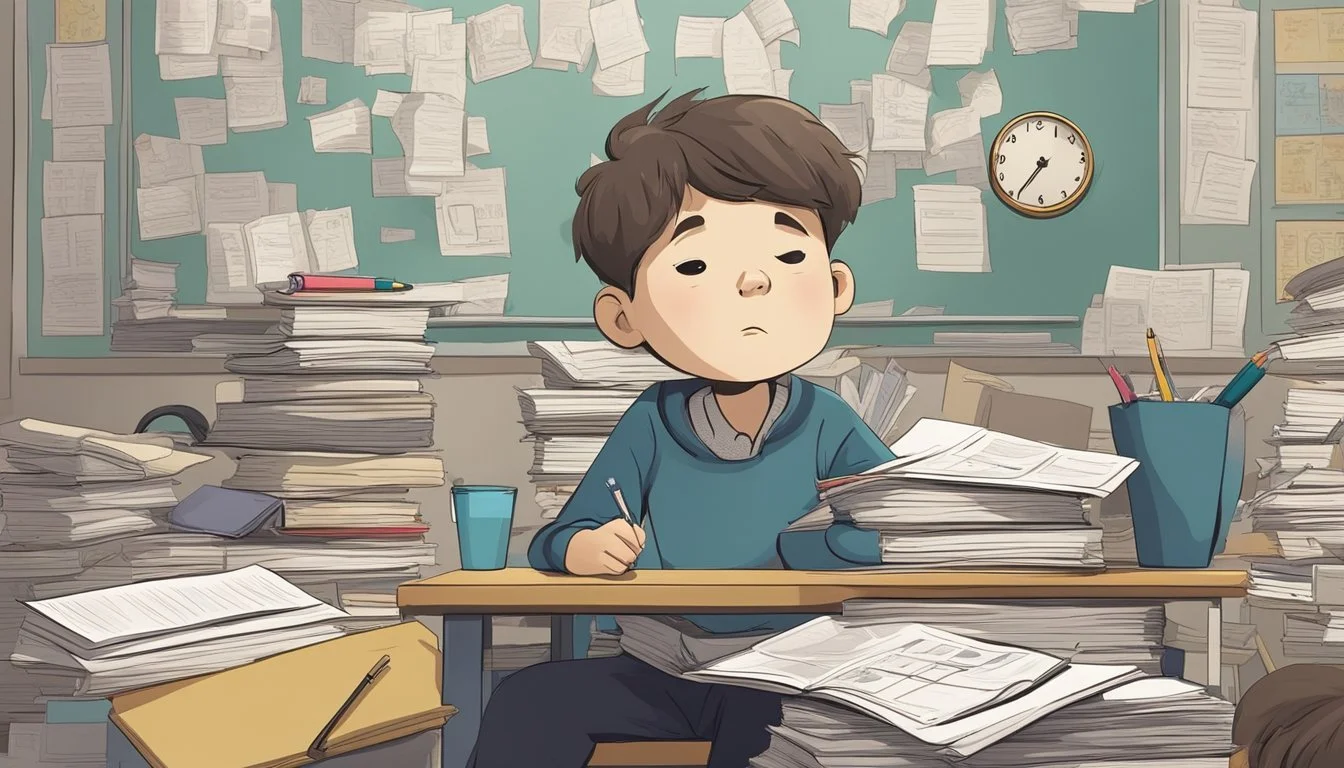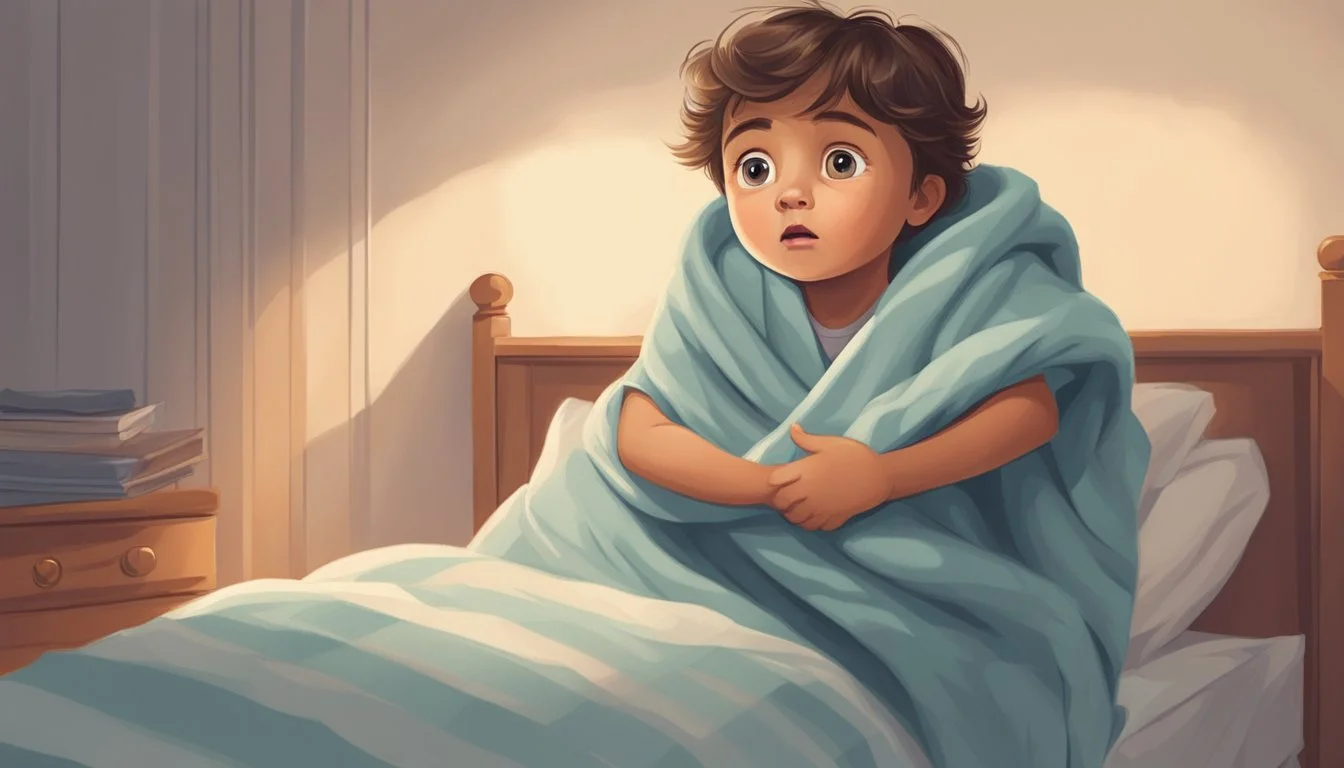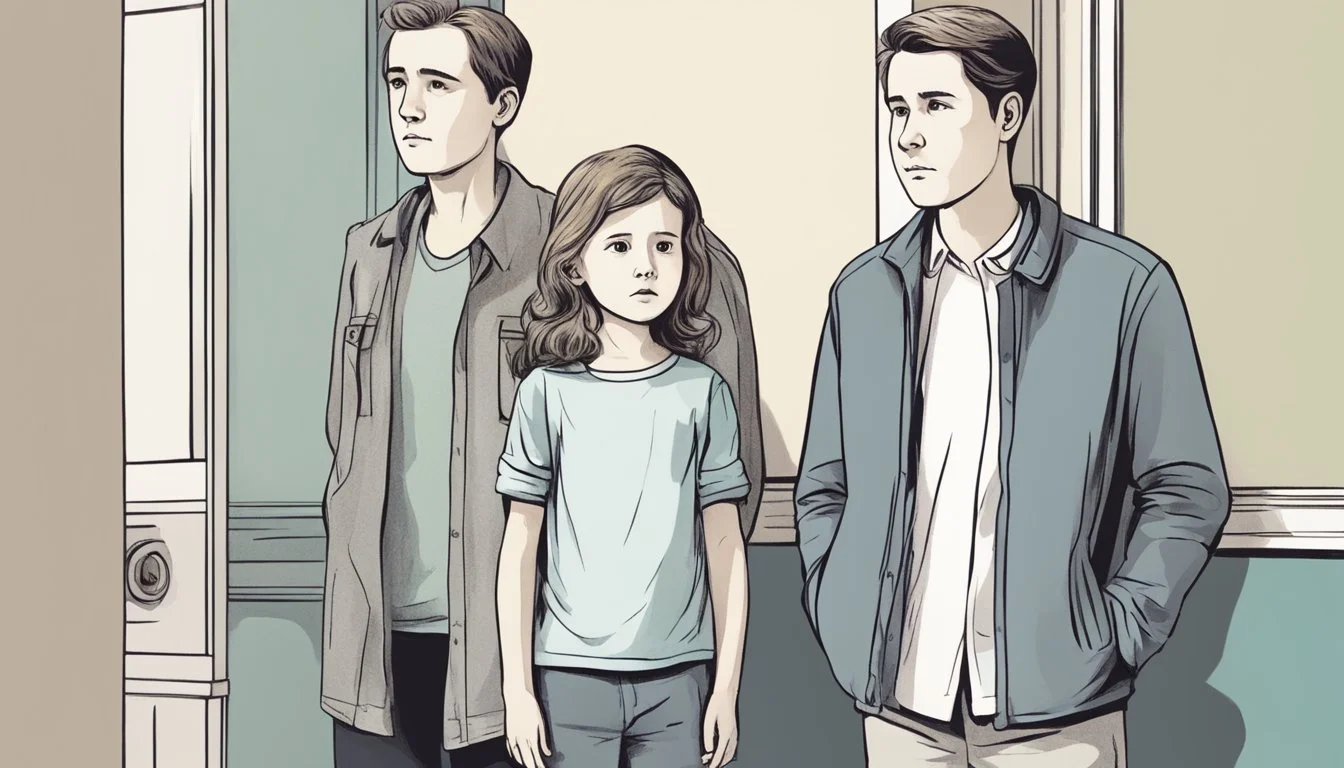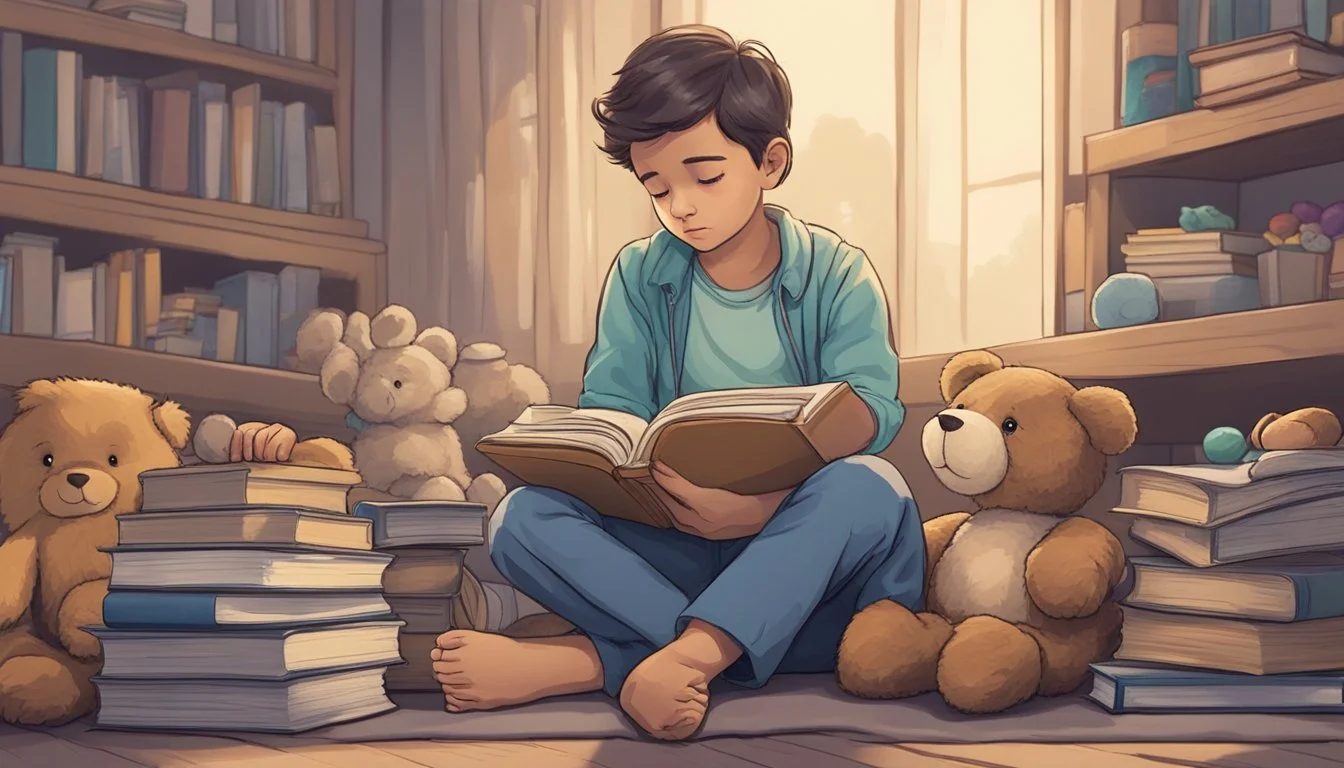15 Signs Your Child May Be Struggling with Anxiety
Recognizing the Early Warning Signals
Anxiety in children is a common but often overlooked issue that can significantly impact their daily lives and overall well-being. Many parents may not recognize the signs of anxiety in their kids, mistaking them for typical childhood behaviors or phases. Recognizing the signs of anxiety in children is crucial for early intervention and support.
Understanding the various manifestations of anxiety in young people can help parents, caregivers, and educators provide the necessary support and resources. From physical symptoms to behavioral changes, anxiety can present itself in numerous ways that may not be immediately apparent. By being aware of these signs, adults can take proactive steps to address anxiety and help children develop healthy coping mechanisms.
1) Frequent Nightmares
Nightmares can be a significant indicator of anxiety in children. These vivid, disturbing dreams often leave kids feeling scared and distressed upon waking.
Children experiencing frequent nightmares may resist going to bed or have trouble falling asleep. They might also seek comfort from parents more often during the night.
The content of nightmares can vary, but they typically involve situations that provoke fear or worry. Common themes include being chased, falling, or facing imaginary monsters.
Nightmares primarily occur during REM sleep, which is more prevalent in the middle of the night or early morning. This timing can disrupt a child's sleep patterns and lead to daytime fatigue.
While occasional bad dreams are normal, persistent nightmares may signal underlying anxiety. These intense dreams can reflect a child's real-life worries and fears.
Parents should create a calm bedtime routine and provide reassurance to help manage nightmare-related anxiety. If nightmares persist and significantly impact a child's daily life, professional help may be beneficial.
2) Changes in Eating Habits
Anxiety can significantly impact a child's eating habits. Some children may experience a decrease in appetite when feeling anxious, leading to skipped meals or a reluctance to eat.
On the other hand, some anxious children may turn to food for comfort, resulting in overeating or binge eating episodes. This can be especially noticeable during times of stress or worry.
Parents might observe their child becoming more selective about foods, avoiding certain textures or flavors they previously enjoyed. Anxiety can also manifest as stomach discomfort, which may cause a child to eat less or avoid meals altogether.
Sudden changes in weight, either loss or gain, can be another indicator of anxiety-related eating issues. It's important to note that these changes should be persistent and noticeable over time.
Children with anxiety might develop rigid eating habits or become overly concerned about food ingredients. This could stem from fears about contamination or health-related worries.
If a child frequently complains of stomach aches around mealtimes or shows signs of nausea when eating, it may be related to anxiety rather than a physical illness.
3) Avoidance of Social Situations
Children with anxiety often exhibit a strong aversion to social situations. They may consistently refuse to attend parties, playdates, or group activities.
Some anxious kids make excuses to avoid school or extracurricular events. They might complain of stomachaches or other physical symptoms to stay home.
Anxious children may struggle with seemingly simple tasks like ordering food at restaurants or speaking to cashiers. They might rely heavily on parents or siblings to handle these interactions.
In school, these children may shy away from group projects or class presentations. They might avoid raising their hand or participating in discussions, even when they know the answers.
Social media and online interactions can also be challenging for anxious kids. They may hesitate to post or comment, fearing judgment from peers.
Recognizing these avoidance behaviors is crucial. While it's normal for children to feel nervous in new situations, persistent avoidance may signal underlying anxiety that requires attention and support.
4) Excessive Worrying
Children with anxiety often exhibit excessive worrying about various aspects of their lives. They may constantly fret about school performance, social interactions, or family issues.
These worries can be disproportionate to the actual situation and may persist even when reassured by adults. Anxious children might repeatedly ask for reassurance or seek constant validation.
They may struggle to control their worries, finding it difficult to shift focus away from their concerns. This persistent worrying can interfere with daily activities and concentration.
Excessive worrying might manifest as frequent "what if" questions or catastrophic thinking. Children may anticipate worst-case scenarios for everyday situations.
Physical symptoms can accompany excessive worrying in children. These may include stomachaches, headaches, or trouble sleeping due to racing thoughts.
Parents might notice their child becoming easily overwhelmed by minor changes or new situations. This heightened state of worry can lead to avoidance behaviors or difficulty making decisions.
5) Difficulty Concentrating
Children with anxiety often struggle to focus on tasks at hand. Their minds may be preoccupied with worries, making it challenging to pay attention in school or during other activities.
Anxious children might appear distracted or daydreaming. They may have trouble following instructions or completing assignments on time. This difficulty concentrating can lead to a decline in academic performance.
Parents and teachers might notice these children frequently asking for instructions to be repeated. They may also take longer to finish tasks that normally wouldn't pose a problem.
In some cases, anxious children might become frustrated or upset when they can't concentrate. This frustration can manifest as restlessness or fidgeting, further impacting their ability to focus.
It's important to note that difficulty concentrating can also be a symptom of other conditions. If a child consistently struggles to focus, it's advisable to consult with a healthcare professional for proper evaluation and guidance.
6) Trouble Sleeping
Sleep disturbances are a common sign of anxiety in children. Many anxious kids struggle to fall asleep or stay asleep through the night.
Some children may resist bedtime, finding it difficult to settle down and relax. They might repeatedly ask for water, another story, or to use the bathroom.
Nighttime fears and worries can keep anxious children awake. They may lie in bed thinking about their concerns or imagining scary scenarios.
Anxious children often experience nightmares or night terrors. These disturbing dreams can cause them to wake up frightened and have trouble falling back asleep.
Physical symptoms of anxiety like stomachaches or headaches can also interfere with sleep. These discomforts may make it hard for children to get comfortable in bed.
Some anxious kids wake up multiple times during the night. They might seek out their parents for comfort or have difficulty self-soothing back to sleep.
Establishing a consistent bedtime routine can help reduce sleep anxiety. Calming activities like reading, gentle music, or deep breathing exercises before bed may promote better sleep for anxious children.
7) Frequent Stomachaches
Children experiencing anxiety often report recurring stomachaches. These pains typically occur without any clear physical cause.
The gut-brain connection plays a significant role in this symptom. Stress and anxiety can trigger digestive issues due to shared neurotransmitters between mood regulation and digestive functions.
Many children complain of stomach discomfort before school or other anxiety-inducing situations. These pains may lead to reluctance to participate in activities or attend school.
Parents should note patterns in their child's stomach complaints. If they consistently occur before certain events or situations, anxiety might be the underlying cause.
While occasional stomachaches are normal, frequent or persistent ones warrant attention. They could signal an anxiety disorder, especially when combined with other symptoms.
It's important to address these stomach issues compassionately. Dismissing them may increase a child's anxiety. Instead, parents should validate their child's feelings while helping them develop coping strategies.
8) Unexplained Outbursts
Children struggling with anxiety may exhibit sudden, intense emotional reactions that seem disproportionate to the situation. These outbursts can manifest as crying spells, tantrums, or expressions of anger or frustration.
Parents might notice their child becoming easily overwhelmed by minor challenges or changes in routine. The child may have difficulty explaining the reasons behind their strong emotional responses.
These outbursts often stem from the internal stress and worry the child is experiencing. Anxiety can make it challenging for children to regulate their emotions effectively, leading to unexpected emotional explosions.
Physical symptoms may accompany these outbursts. A child might complain of stomachaches, headaches, or nausea during or immediately following an emotional episode.
It's important to note that these unexplained outbursts can occur in various settings, including home, school, or social situations. The frequency and intensity of these episodes may increase as the child's anxiety levels rise.
9) Withdrawing from Activities
Children experiencing anxiety may start to withdraw from activities they previously enjoyed. This can include avoiding social gatherings, sports teams, or extracurricular clubs.
Parents might notice their child making excuses to skip events or expressing reluctance to participate in group activities. They may prefer to stay home rather than engage with peers or try new experiences.
Anxiety can make social situations feel overwhelming, leading children to isolate themselves. They might struggle with fears of judgment or making mistakes in front of others.
A child who once eagerly attended birthday parties or playdates may suddenly become hesitant or refuse to go. This withdrawal can extend to school activities, with the child avoiding class presentations or group projects.
It's important to distinguish between occasional reluctance and a persistent pattern of withdrawal. If a child consistently pulls away from activities they used to love, it may signal underlying anxiety that needs attention.
10) Clinginess to Parents
Excessive clinginess to parents can be a sign of anxiety in children. While some clinginess is normal during certain developmental stages, persistent and intense attachment may indicate underlying concerns.
Anxious children often struggle to separate from their parents. They may become visibly distressed when a parent leaves, even for short periods. This behavior can manifest in various settings, such as school drop-offs or bedtime.
Children experiencing anxiety might shadow their parents around the house, seeking constant proximity and reassurance. They may resist independent activities or playtime, preferring to stay close to their caregivers.
Physical symptoms can accompany clingy behavior. Some children may complain of stomachaches or headaches when faced with separation. Others might exhibit regressive behaviors, like baby talk or requesting help with tasks they previously managed independently.
Parents may notice their child becoming more demanding of attention or affection. Anxious children might frequently ask for hugs, hand-holding, or verbal reassurance of safety and love.
It's important to note that clinginess can vary in intensity. Some children may display subtle signs, while others might have more pronounced reactions to separation or independence.
11) Loss of Interest in Hobbies
Children experiencing anxiety may suddenly lose interest in activities they once enjoyed. This shift can be a noticeable red flag for parents and caregivers.
A child who previously loved sports might start making excuses to skip practice. They may abandon their favorite toys or stop engaging in creative pursuits like drawing or crafting.
This disinterest often stems from overwhelming worry or fear. Anxiety can consume a child's thoughts, leaving little mental energy for hobbies or play.
Parents might notice their child spending more time alone or seeming listless. They may struggle to find motivation for activities that used to bring them joy.
It's important to approach this change with empathy and understanding. Gently encourage participation without forcing the issue, as pressure can increase anxiety.
Consider talking to your child about their feelings and any worries they might have. Sometimes, addressing underlying concerns can help reignite interest in beloved activities.
If the loss of interest persists or is accompanied by other signs of anxiety, consulting a mental health professional may be beneficial. They can provide guidance and support tailored to your child's needs.
12) Restlessness or Fidgeting
Restlessness and fidgeting are common signs of anxiety in children. These behaviors often manifest as an inability to sit still or constant movement, even when the situation calls for calmness.
Children experiencing anxiety may frequently tap their feet, drum their fingers, or shift in their seats. They might also play with objects, twist their hair, or engage in other repetitive motions.
In some cases, anxious children may pace or wander around a room. This physical restlessness can be their way of coping with internal feelings of unease or nervousness.
Fidgeting can also extend to more subtle behaviors. A child might repeatedly adjust their clothing, bite their nails, or chew on pencils or other objects.
It's important to note that while restlessness and fidgeting can indicate anxiety, they can also be signs of other conditions. Observing these behaviors alongside other anxiety symptoms can help in identifying the underlying cause.
Parents and caregivers should pay attention to patterns in their child's restless behavior. If it intensifies in certain situations or environments, it may be linked to specific anxiety triggers.
13) Decline in School Performance
A noticeable drop in academic performance can be a sign of anxiety in children. Grades may start to slip, and teachers might report incomplete assignments or a lack of participation in class.
Anxiety can interfere with a child's ability to concentrate and retain information. This can lead to difficulty completing tasks, studying for exams, or engaging in classroom activities.
Some children may avoid school altogether due to anxiety, resulting in increased absences. Others might struggle to keep up with coursework, leading to a backlog of unfinished assignments.
Anxiety can also affect a child's memory and cognitive processing. This may cause them to perform poorly on tests, even if they have studied and know the material.
It's important to note that a decline in school performance doesn't always indicate anxiety. However, when combined with other signs, it can be a significant indicator that a child is struggling with anxiety-related issues.
14) Increased Irritability
Children experiencing anxiety may exhibit increased irritability. This can manifest as frequent anger outbursts, temper tantrums, or a generally grumpy mood that seems out of character.
Anxious children might have a lower threshold for frustration, becoming easily upset by minor inconveniences or changes in routine. They may snap at family members or friends over seemingly small issues.
Physical symptoms like headaches or stomachaches can contribute to irritability. These discomforts, often associated with anxiety, may make children more prone to emotional reactions.
Irritability can also stem from sleep disturbances common in anxious children. Lack of quality sleep often leads to crankiness and difficulty managing emotions during the day.
Parents might notice their child becoming argumentative or defiant more often. This behavior could be a way of expressing underlying anxiety or attempting to avoid anxiety-inducing situations.
It's important to recognize that increased irritability may be a sign of anxiety rather than simply "bad behavior." Addressing the root cause can help improve the child's emotional well-being and overall behavior.
15) Sensitive to Criticism
Children struggling with anxiety often display heightened sensitivity to criticism. They may react strongly to even mild corrections or feedback from parents, teachers, or peers.
These children might become visibly upset, cry, or withdraw when receiving constructive criticism. They may interpret well-meaning suggestions as personal attacks or signs of failure.
Anxious children frequently seek approval and validation from others. Criticism can feel particularly threatening, as it challenges their desire for perfection and fear of disappointing others.
Parents may notice their child becoming defensive or argumentative when receiving feedback. Some children might avoid activities or situations where they could potentially face criticism.
This sensitivity can impact a child's willingness to try new things or take risks. They may stick to activities they know they excel at to avoid potential negative feedback.
Helping anxious children develop resilience to criticism is important. Teaching them to reframe feedback as opportunities for growth can reduce anxiety and build confidence over time.
Understanding Childhood Anxiety
Anxiety in children is a complex issue with various causes and manifestations. Recognizing the difference between normal worries and anxiety disorders is crucial for parents and caregivers.
Common Causes of Anxiety in Children
Genetic predisposition plays a significant role in childhood anxiety. Children with anxious parents are more likely to develop anxiety themselves. Environmental factors also contribute, including stressful life events, traumatic experiences, or major changes like moving or changing schools.
Family dynamics can impact a child's anxiety levels. Overprotective parenting or high parental expectations may inadvertently increase anxiety. Academic pressures, social challenges, and bullying at school can trigger or exacerbate anxiety in children.
Medical conditions or certain medications may sometimes lead to anxiety-like symptoms. It's important to rule out physical causes when assessing a child's anxiety.
Difference Between Normal Worry and Anxiety
Normal worry is temporary and proportionate to the situation. It typically doesn't interfere with daily activities or cause significant distress. Children may worry about tests or new situations, but these concerns usually subside once the event passes.
Anxiety, in contrast, is more persistent and intense. It often involves:
Excessive fears or worries
Physical symptoms like stomachaches or headaches
Avoidance of certain situations or activities
Difficulty concentrating or sleeping
Anxious children may struggle with everyday tasks and show signs of distress even in non-threatening situations. Their worries may seem irrational to others but feel very real to the child.
If anxiety symptoms persist for several weeks and impact a child's daily functioning, it may indicate an anxiety disorder requiring professional assessment and intervention.
Identifying Anxiety in Children
Recognizing anxiety in children requires attention to both physical and behavioral signs. Parents and caregivers should be aware of changes in a child's body and actions that may indicate underlying anxiety.
Physical Symptoms
Children with anxiety often experience physical manifestations of their distress. Common symptoms include stomachaches, headaches, and nausea. Some children may complain of chest tightness or shortness of breath.
Sleep disturbances are another key indicator. Anxious children might have trouble falling asleep or staying asleep through the night. They may also experience nightmares or bedwetting.
Unexplained fatigue or restlessness can signal anxiety. Children may appear fidgety or unable to sit still. Some might develop muscle tension or unexplained aches and pains.
Behavioral Changes
Anxiety can significantly impact a child's behavior. Increased irritability or sudden emotional outbursts may occur. Children might become more clingy or resistant to separating from parents.
Avoidance behaviors are common. An anxious child may refuse to participate in certain activities or try to escape situations that trigger their anxiety. They might also exhibit excessive worry about future events or everyday tasks.
Changes in eating habits can indicate anxiety. Some children may lose their appetite, while others might overeat. Difficulty concentrating or a sudden drop in academic performance can also be signs of underlying anxiety.
Perfectionism or fear of making mistakes may become more pronounced. Children might seek constant reassurance or become overly self-critical.
Steps to Support an Anxious Child
Supporting a child with anxiety requires creating a nurturing environment and recognizing when professional help is needed. Parents and caregivers play a crucial role in helping children develop coping strategies and build resilience.
Creating a Supportive Environment
Establish a consistent routine to provide structure and predictability. This can help reduce uncertainty and promote a sense of security. Encourage open communication by actively listening to your child's concerns without judgment.
Validate their feelings and avoid dismissing their worries. Use phrases like "I understand you're feeling scared" to show empathy.
Teach relaxation techniques such as deep breathing or progressive muscle relaxation. Practice these together during calm moments so they become familiar tools.
Help your child identify and challenge negative thoughts. Encourage them to reframe anxious thoughts into more realistic ones.
Set achievable goals and celebrate small victories. This builds confidence and reinforces positive behaviors.
When to Seek Professional Help
Seek professional help if anxiety significantly impacts your child's daily life or causes persistent distress. Signs that warrant professional intervention include:
Frequent panic attacks or intense physical symptoms
Avoidance of school or social situations
Persistent sleep problems
Declining academic performance
Extreme irritability or aggression related to anxiety
A mental health professional can provide a proper diagnosis and develop a tailored treatment plan. This may include cognitive-behavioral therapy, which has shown effectiveness in treating childhood anxiety.
Consider family therapy to address any family dynamics contributing to the child's anxiety. Medication might be recommended in some cases, but this decision should be made in consultation with a qualified healthcare provider.










